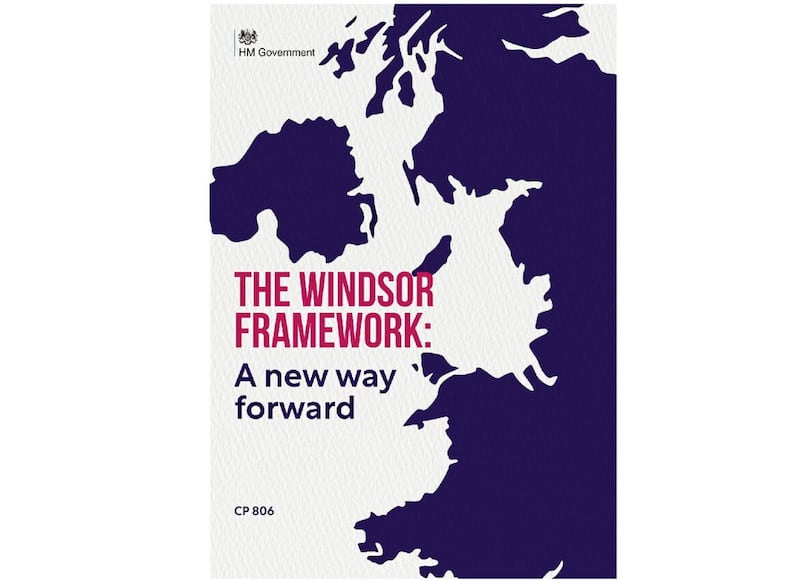FROM the backstop to the protocol to the Windsor Framework, voters in Northern Ireland may be the most educated population on international agreements.
For the third time since the Brexit referendum in 2016, we have a proposal in the form of the Windsor Framework which seeks to allay the fears that many hold about our place within the UK, delicately balanced against the needs of others to ensure no border is created on the island of Ireland.
A heady mixture of emotion, technicalities and practicalities, the latest poll shows a more nuanced understanding of the Windsor Framework, and it may surprise some to see that there is still a lot to play for, with only 15.8 per cent of unionist voters opposed to it.
A number of wins were recognised by DUP and TUV supporters in the poll; the Irish Sea border on trade has been removed; unfettered movement of medicines; and a green lane for products destined for Northern Ireland are all now in play because of changes secured in the deal.
However, with Westminster set to vote on the Windsor Framework on Wednesday, the DUP has stated its intention to vote against the deal before their own internal consultation process completes at the end of the month. Not a surprise given the party has resolutely played by its own rules when it comes to political negotiations.

Whilst this sends a clear signal to the prime minister that the deal doesn’t cut the mustard, it is not yet curtains for the Windsor Framework. The vote might instead be interpreted as a tactical move; as Sir Jeffrey himself said this week, he hasn’t come this far to falter in the final lap.
Read More
- Survey shows support for Windsor Framework three times greater than opposition
- Majority urge DUP back into government – poll
- Poll reveals overwhelming cross-community support for protocol's dual market access
- Half of voters believe rigorous implementation calls overlooked need for protocol renegotiation
- Analysis: Poll points to potential route out of self-inflicted mess
- Prof Peter Shirlow: Realising the achievements needs leadership
Ultimately, the eye of the DUP has to be on reclaiming the role of first minister, and most recently this strategy has focused on winning back votes from the TUV. However the ping-ponging between the two parties will unlikely give it the lift it needs.
Therefore, there is a growth opportunity by tapping into the positive sentiments towards the Windsor Framework from soft unionists who are looking for a strong, coherent and positive vision for unionism.
This strategy has worked well to date for Sinn Féin who have moved beyond their base to capture new voters north and south.
With all the focus on how unionists feel about the Windsor Framework, perhaps one of the more interesting findings from the poll is that more nationalists than unionists oppose the agreement, by a margin of almost 4 per cent.
We might surmise that the voters respond to the questions in different ways; many nationalist voters might say they don’t support the framework as they didn’t support Brexit and so don’t want to give legitimacy to the deal.
What this tells us about where nationalism sits at the minute is intriguing, with the most obvious manifestation likely to be in energising the campaign for Irish unity.
There are also suggestions of a more pragmatic assessment of the deal. This is reflected in the concession that almost 40 per cent of nationalist voters believe that political parties underestimated the need for re-negotiation of the protocol, in a spirit of generosity not usually shown so close to an election.
In all of this, it is clear that these results show that our relationship with Brexit is far more complex than social media would lead us to believe.
So, it’s over to the DUP to decide how they play the next move in a game that has seen four prime ministers grapple with three different solutions, and the prospect of a new government in Westminster which might not accommodate the needs of the second largest party in a population that is only 2.9 per cent of the UK.
If the they chose their moment, sell the win and provide political leadership, the real hard work begins for unionism to find its place in a world – and an electorate - that has changed profoundly in the past 25 years.
Anna Mercer is deputy director at political consultancy Stratagem







